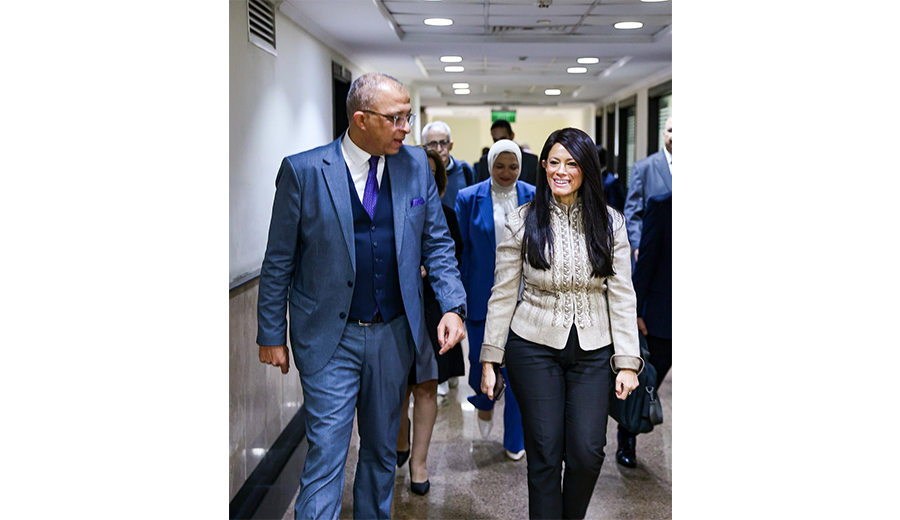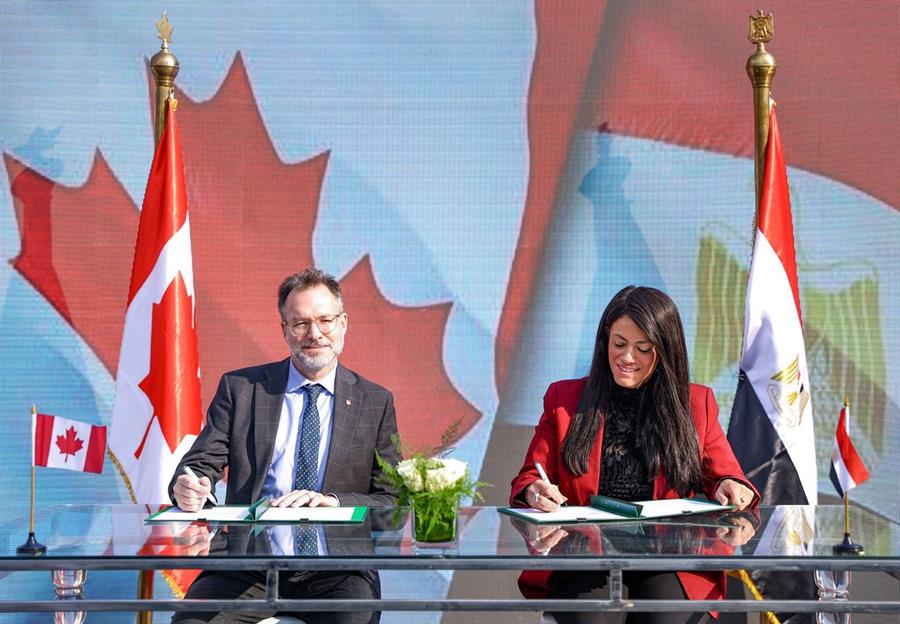Egypt Award for Gov't Excellence, Universities Supreme Council discuss the executive steps to launch the internal excellence awards in universities

07 October 2021
The Egypt Award for Gov't Excellence team, headed by Eng. Khaled Mostafa, Permanent Undersecretary of the Ministry of Planning and Economic Development and General Supervisor of the Award met; Dr. Muhammad Latif, Secretary of the Supreme Council of Universities, to discuss the reports and recommendations that were monitored during the evaluation phase for the second cycle of the award 2020, and the executive steps to launch the internal excellence awards in universities.
This is based on the directives of Dr. Hala El-Said, Minister of Planning and Economic Development, and to complement the series of visits undertaken by the Egypt Award for Gov't Excellence to many government agencies participating in the award’s current session.During the meeting, Eng. Khaled Mostafa explained that the launch of the Egypt Award for Gov't Excellence comes within the framework of implementing the objectives of Egypt’s Vision 2030, to support the state’s efforts to spread a culture of excellence and institutional development.For his part, Dr. Mohamed Latif welcomed the implementation of the university’s internal excellence awards initiative, proposing the use of university professors to develop the internal awards standards to build an integrated work environment in line with the university work system, while honoring successful models financially and morally by supporting exceptional promotions for the distinguished.During the meeting, Ms. Soha Saeed, Executive Director of the award, presented the stages of implementing the work of the second session of the award, the pillars, and criteria of the government excellence system, as well as discussing the executive steps for launching and implementing the internal awards for excellence in universities by providing total support from the award management.









